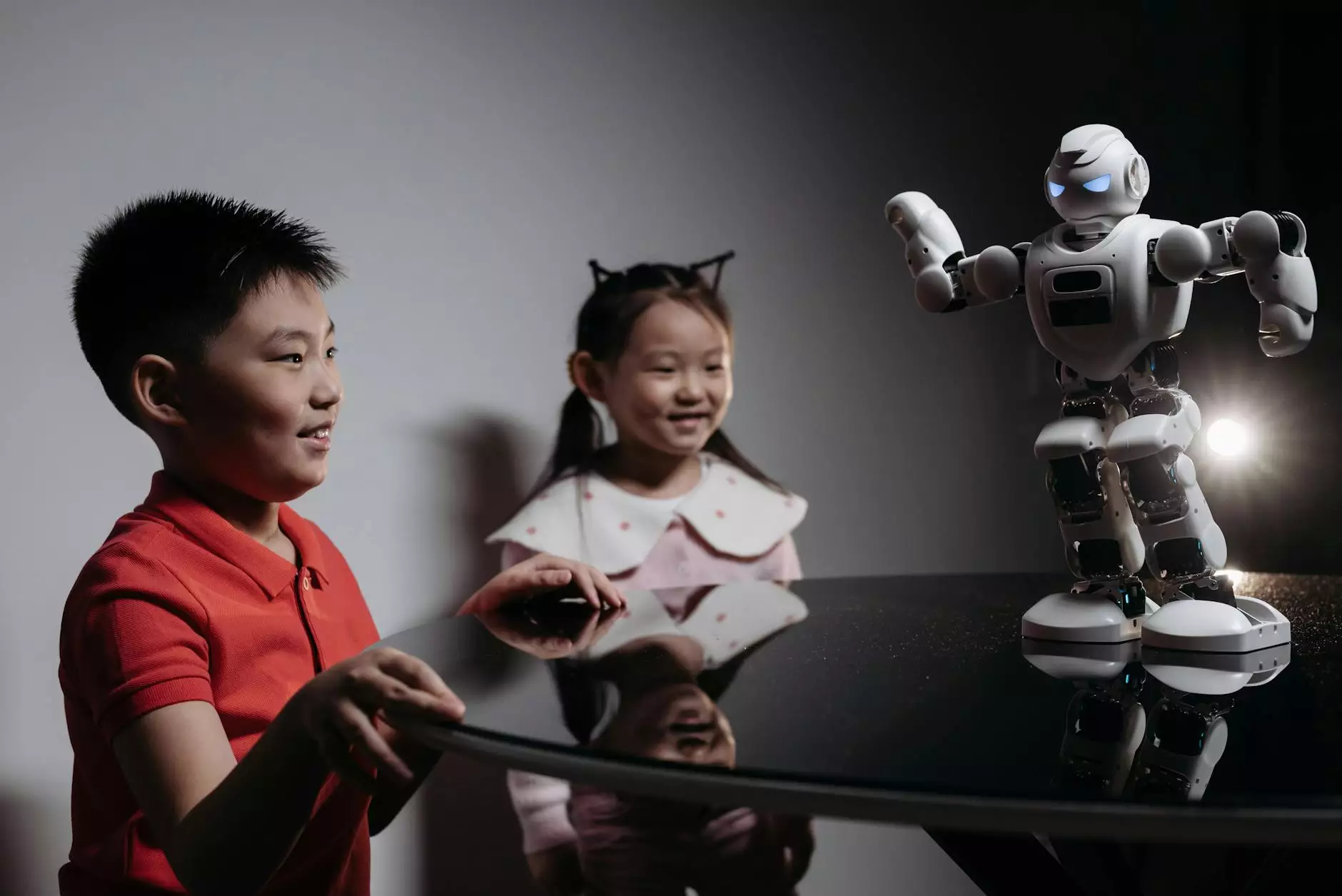Transforming Education and Special Education with AI: The Future is Here

Introduction to AI in Education
The integration of artificial intelligence (AI) into the education sector is not just a trend; it represents a significant transformation in how we perceive teaching and learning. At thesify.ai, we understand the pivotal role that AI can play in enhancing educational outcomes for all students, especially in the fields of Educational Services and Special Education. This article explores the profound impacts of writing with AI and how it can reshape the educational landscape.
Understanding AI and its Educational Applications
AI refers to the simulation of human intelligence in machines programmed to think and learn. In education, AI can personalize learning experiences, automate administrative tasks, and provide insights into student performance, thus supporting teachers and enhancing the learning process.
Personalized Learning Experiences
One of the most significant advantages of AI in education is its ability to offer personalized learning experiences. By analyzing a student's learning habits, preferences, and performance data, AI systems can create tailored educational paths that cater to individual needs, ensuring that every student receives the attention they deserve.
Automation of Administrative Tasks
AI can streamline numerous administrative functions, allowing educators to focus on teaching rather than paperwork. Tasks such as grading, attendance tracking, and scheduling can be automated, creating more time for educators to engage with students directly.
AI-Driven Insights into Student Performance
With AI's analytical capabilities, educators can gain valuable insights into student performance. This data-driven approach allows educators to identify students who may be struggling and tweak their instruction methods accordingly to foster a supportive learning environment.
The Role of AI in Special Education
Special Education often requires specialized tools to cater to diverse learning needs. AI plays a crucial role in providing solutions that enhance the learning experiences of students with disabilities. By focusing on technology and personalized approaches, AI can bridge educational gaps effectively.
Adaptive Learning Technologies
Adaptive learning technologies use AI algorithms to adjust the level of difficulty of tasks based on the student's current performance. This ensures that students in special education can learn and progress at their own pace, fostering confidence and skill mastery.
Assistive Communication Tools
AI-powered assistive communication tools can open new avenues for students with speech and language difficulties. These tools can help facilitate communication through speech recognition and generation, enabling students to express themselves more effectively.
Interactive Learning Environments
AI can create immersive and engaging learning environments through interactive platforms that adapt to the needs of special education students. These platforms can include gamified learning modules, simulations, and virtual reality experiences tailored to individual learning profiles.
Effective Implementation Strategies for AI in Education
For AI to make a meaningful impact in education, its implementation must be strategic and thoughtful. Here are some effective strategies to consider:
- Professional Development for Educators: Training educators on AI tools and their applications is crucial. Workshops and ongoing training can help teachers learn how to integrate AI effectively into their classrooms.
- Collaboration between Stakeholders: Essential stakeholders, including educators, administrators, and technology providers, must collaborate to create solutions that meet students' needs.
- Focus on Ethics and Equity: As AI technologies grow, ensure that they are implemented ethically and equitably, focusing on accessibility for all students.
- Ongoing Assessment and Feedback: Regularly assess the effectiveness of AI tools in the classroom and solicit feedback from educators and students to continuously improve and adapt.
The Future of Education with AI
The future of education is bright with AI on the horizon. As technology continues to evolve, we anticipate even more advanced applications of AI that can cater to the varied needs of students across all sectors of education.
Expanding Opportunities for Lifelong Learning
The integration of AI in education will promote lifelong learning by making educational resources more accessible. Adults seeking further education or retraining can benefit from AI-enhanced adaptive learning platforms that cater to their unique schedules and goals.
Strong Community and Support Systems
AI can facilitate stronger community connections through platforms that link learners with mentors, peers, and support resources. This approach will foster a rich educational environment that encourages collaboration and shared learning experiences.
Conclusion
In conclusion, the fusion of education and AI is reshaping how we approach learning, particularly in Special Education. Innovations driven by AI are paving the way for enhanced educational outcomes and more inclusive classrooms. By embracing AI technologies and focusing on their effective implementation, we can ensure that every learner has the opportunity to thrive. At thesify.ai, we are committed to this vision and are excited about the future of education.
Call to Action
If you’re interested in discovering how writing with AI can transform your educational approach, whether you're an educator, a parent, or a student, we invite you to explore the offerings at thesify.ai. Together, let's embrace the future of education!



